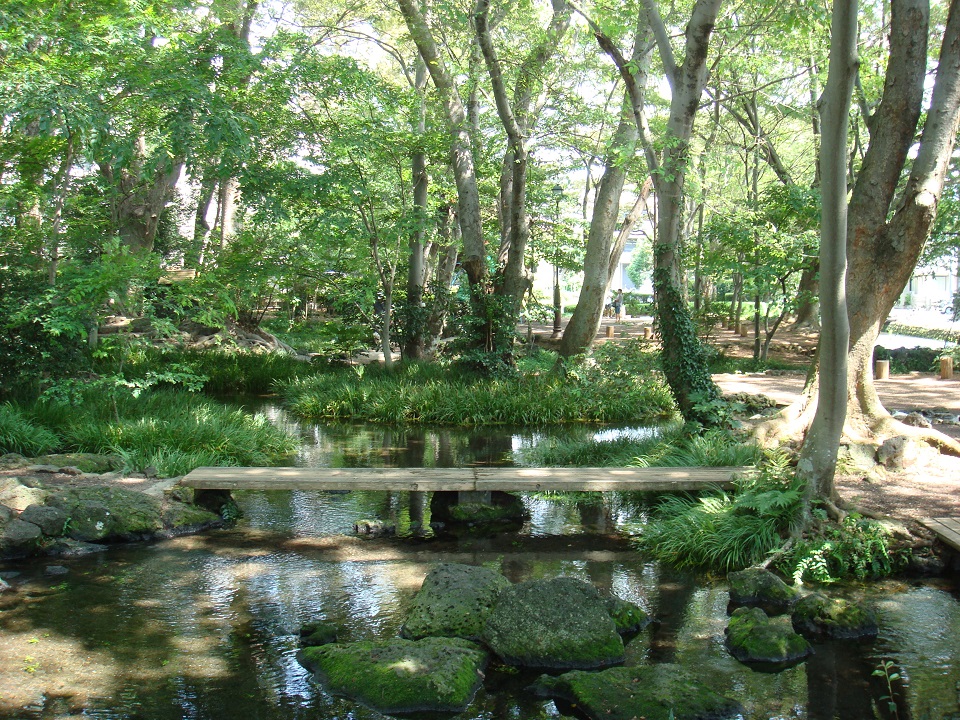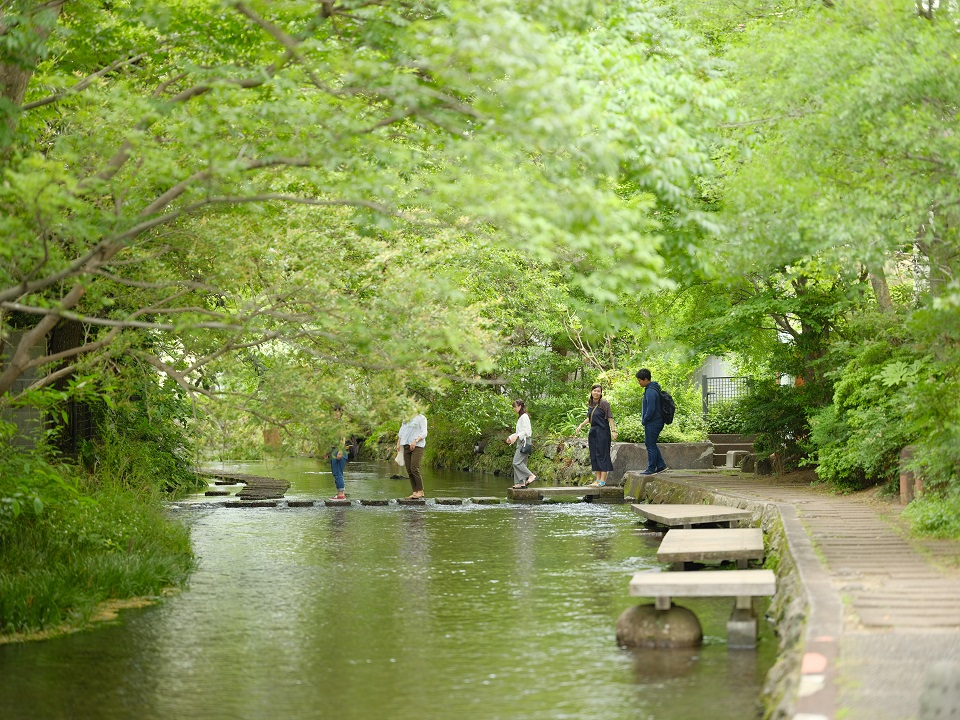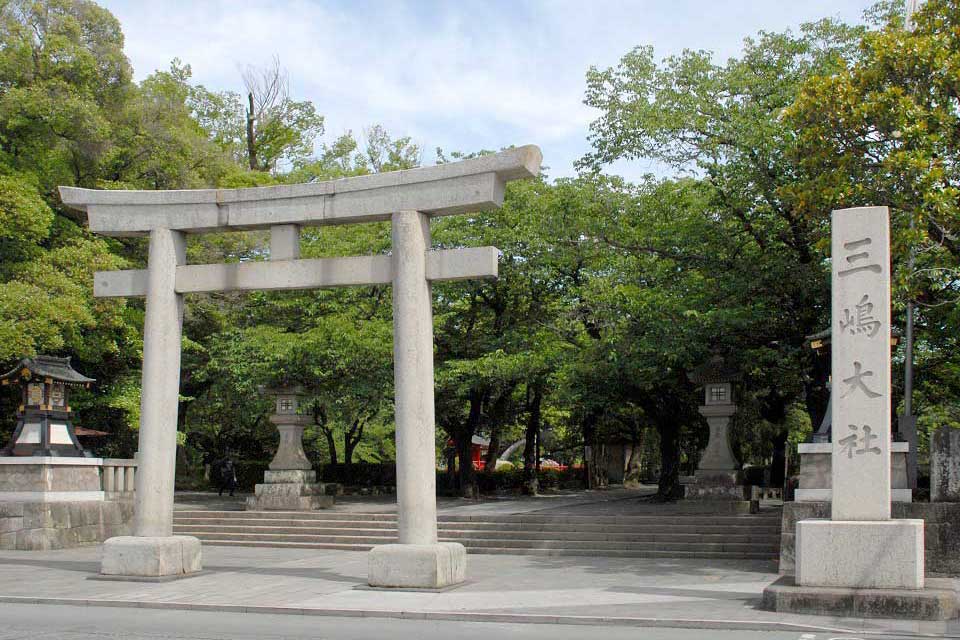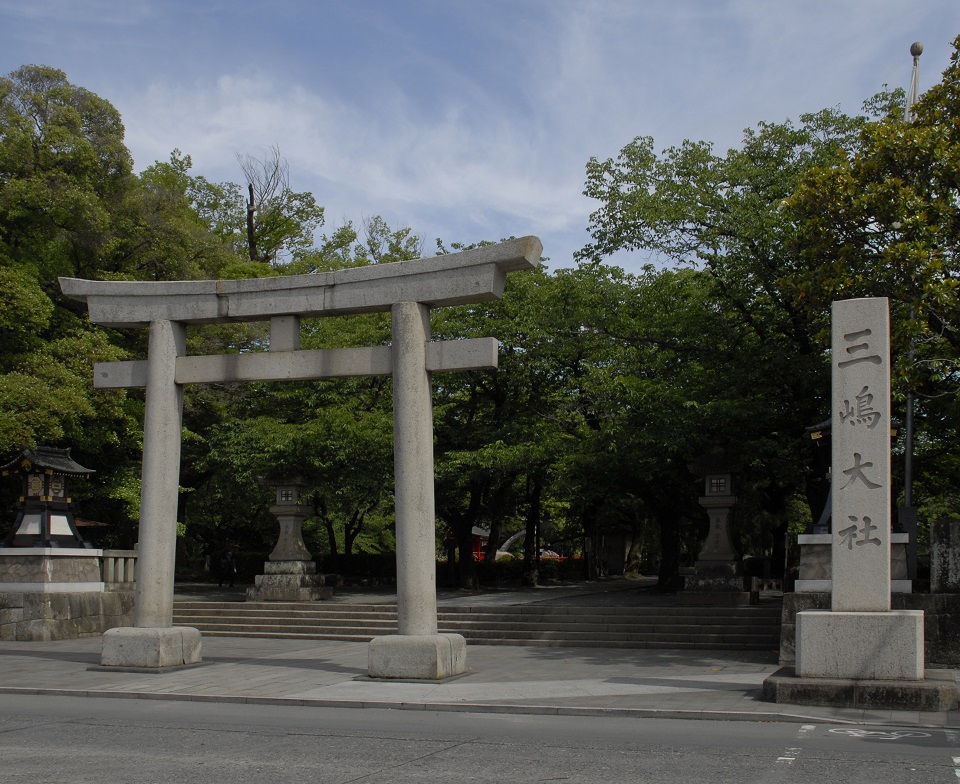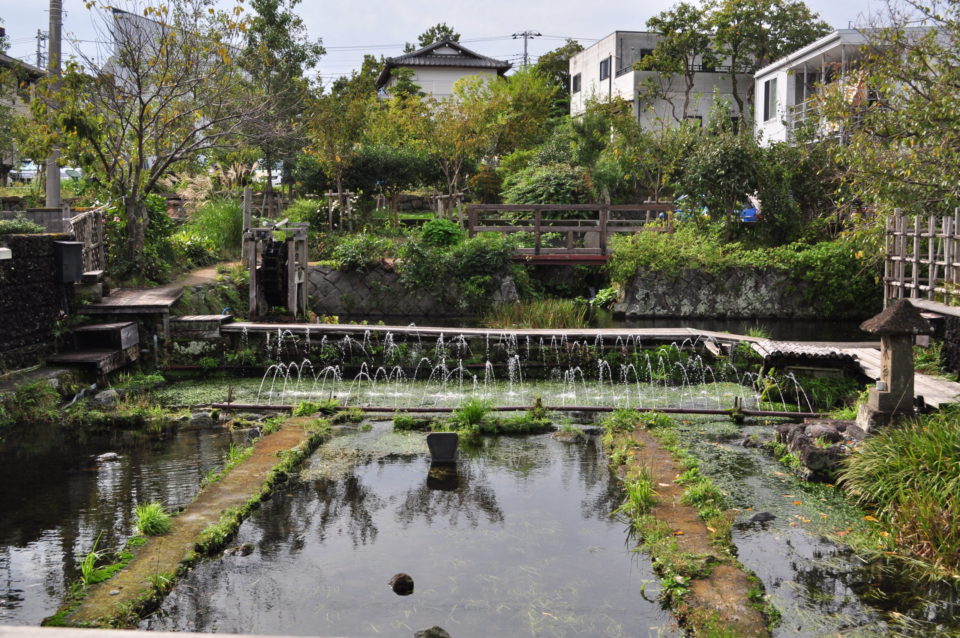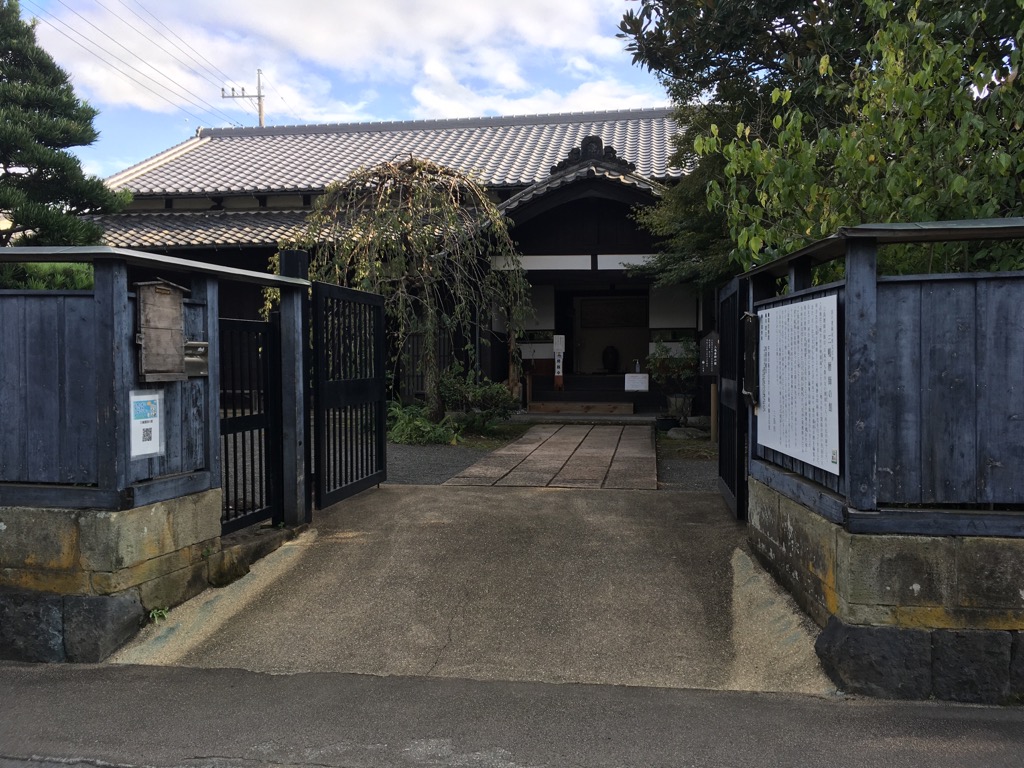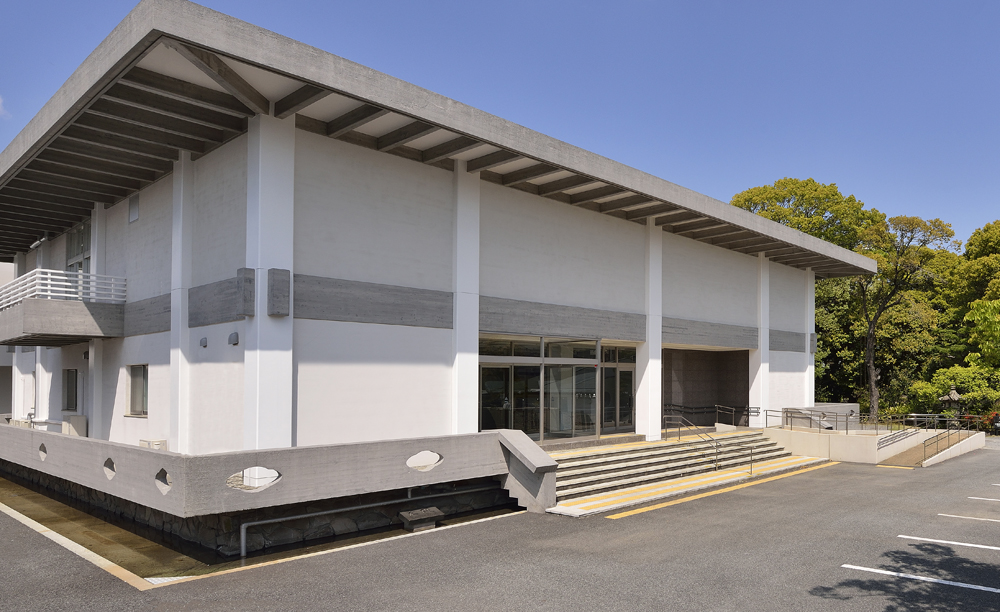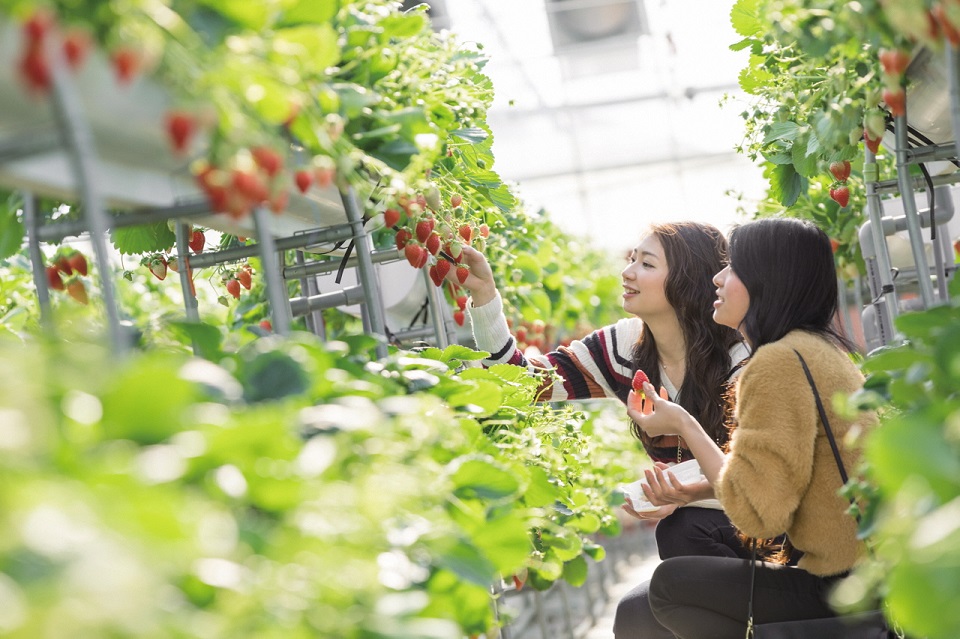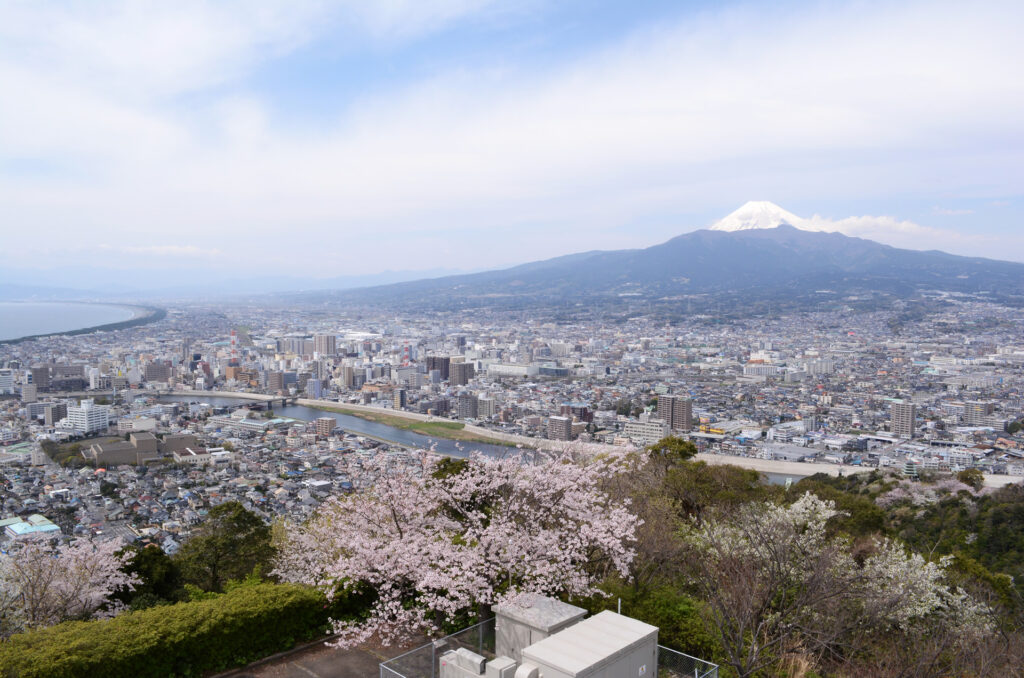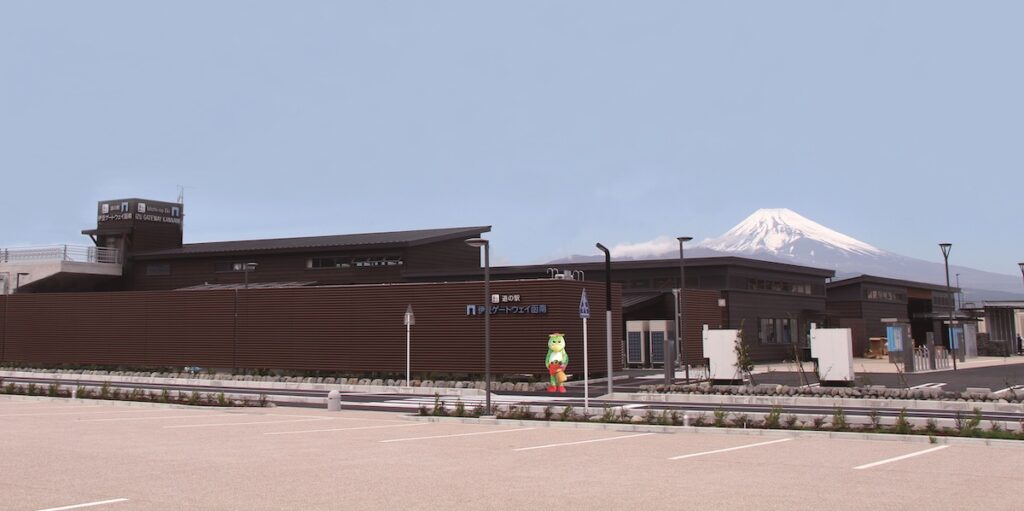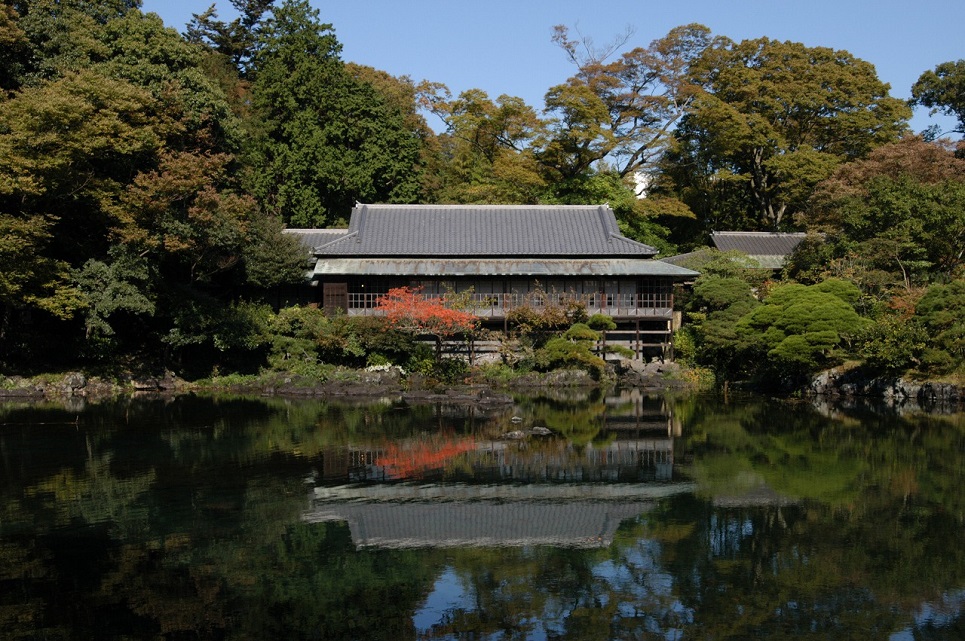
History/Culture
Nature/Scenic spots
Rakujuen
Rakujuen is a 75,474 square meter (247,618 square foot) public park to the south of Mishima Station.
Prince Komatsu Akihito built a villa at the location during the Meiji Revolution, which is how the park came to be.
You can observe trees, birds and animals where the lava from Mt. Fuji erupting flowed approximately 10,000 years ago (known as the “Mishima lava flow”).
Nationally Protected Species and Scenic Places
There are nationally protected species of plants and scenic places to admire in this garden. It has natural ponds like Kohama Pond and Seri No Se and is surrounded by nature. The water level of Kohama Pond changes every day due to the water that emerges from between volcanic rocks. The amount of water in the pond is slowly decreasing every year. During the dry season, you can see the 10,000 year old molten rocks (from the Mishima lava flow). The dry season is very long, but the pond will be full of water at least once every year.
Rakujuen
Rakujuen was built as a villa by Prince Komatsu Akihito in 1890. The sukiya style building was completed in the Edo period. The building is a good example of Kyoto architecture, and is built so that it is one with the garden. There are 210 fusuma paintings, cedar board paintings, and ceiling paints by imperial household artists (the modern-day equivalent of “living national treasures”) and Japanese painters, which are representative of the Meiji era. These works are designated as cultural properties by the Shizuoka Prefecture.
Animal Plaza
Home to red pandas, alpacas, capybaras, and prairie dogs. You can also meet rabbits and guinea pigs at the animal petting plaza, and ride ponies.
地図情報
詳細情報
Related links

